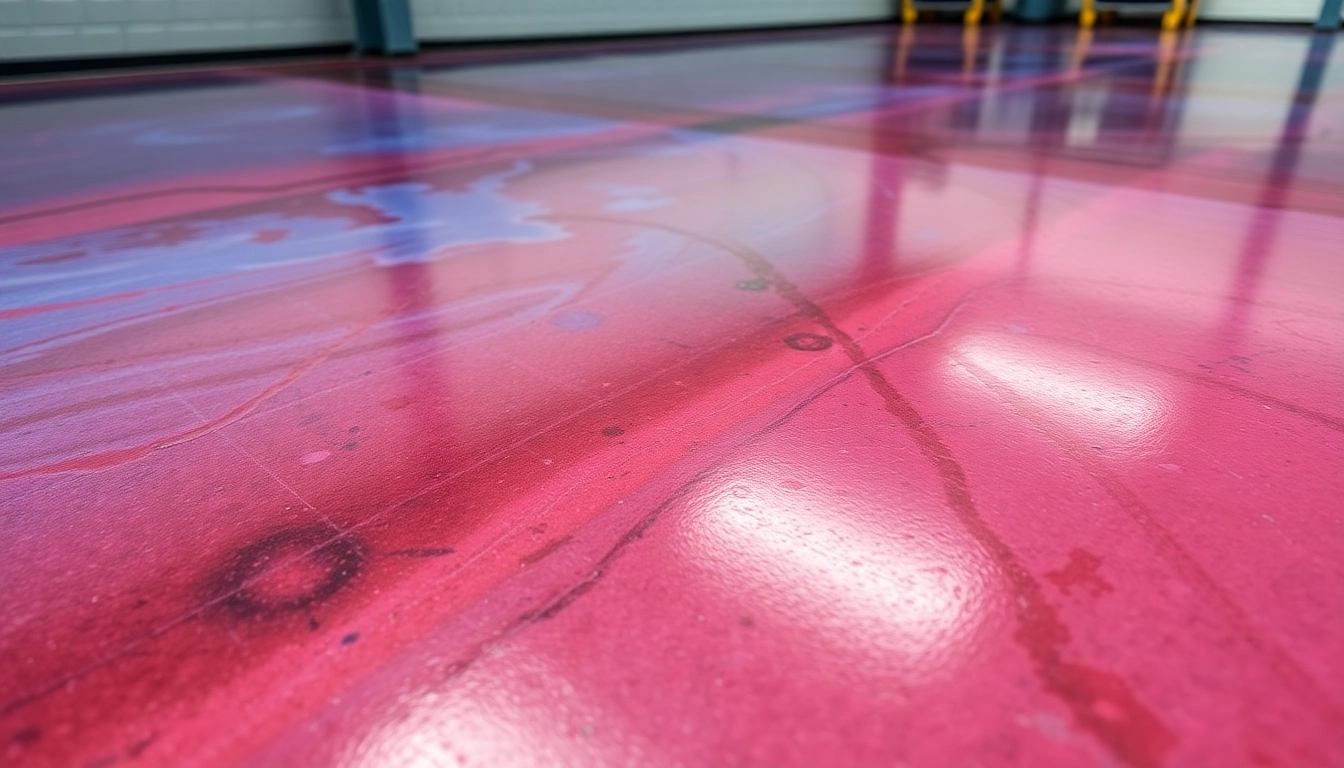
Understanding the Role of Professional Roofers
Roofing is a vital component of any building, providing protection against weather elements, insulation, and contributing to the structural integrity of both residential and commercial properties. Behind the scenes of maintaining a sturdy, reliable roof are skilled tradespeople known as roofers. These professionals are the backbone of roofing projects, encompassing a wide range of skills, expertise, and services essential for both routine maintenance and complex renovations.
The Skills and Expertise Roofers Bring
Professional roofers possess a diverse skill set that combines technical knowledge, physical dexterity, and a keen eye for detail. They’re trained in measuring, cutting, and installing a variety of roofing materials with precision to ensure durability and aesthetic appeal. Their expertise extends to understanding the structural requirements of different building types, ensuring that each roofing solution is tailored to the specific needs of the property.
For instance, they are adept at working with materials such as asphalt shingles, concrete tiles, slate, metal sheets, and modern synthetic options. Roofers also have a deep understanding of building codes, safety standards, and environmental considerations, which are crucial in planning and executing roofing projects that last and comply with regulations.
Additionally, experienced roofers are proficient in diagnosing issues like leaks, structural weaknesses, or damage from weather events. They implement repair strategies that not only fix the immediate problem but also prevent future complications. This combination of skill and knowledge ensures homeowners and business owners receive high-quality service that safeguards their property for years to come.
Different Types of Roofing Services Offered
The roofing industry encompasses a broad spectrum of services, each tailored to specific needs. Professional roofers are equipped to handle:
- Roof installation: New construction projects or full replacements where the entire roofing structure is installed from scratch.
- Roof repairs: Fixing leaks, replacing damaged tiles, sealing cracks, and addressing minor or major damage caused by weather, accidents, or aging.
- Roof inspections: Comprehensive assessments to evaluate the condition of a roof, often necessary for insurance, maintenance planning, or before property transactions.
- Maintenance programs: Routine cleaning, moss removal, gutter clearing, and minor repairs to prolong roof life.
- Specialized roofing solutions: Including flat roofing, green roofs, solar panel integrations, and custom designs for architectural projects.
Each of these services requires specific expertise and equipment, making it crucial to hire qualified roofers who can deliver comprehensive solutions tailored to your property’s unique requirements.
Common Challenges Faced During Roofing Projects
Roofing projects are complex endeavors that can encounter many challenges. These issues often require professional insight and experience to navigate effectively:
- Weather disruptions: Rain, snow, or high winds can delay work and introduce risks, demanding flexible scheduling and contingency planning.
- Hidden structural issues: Discovering compromised underlying structures, such as rotten wood or corroded support beams, during the project can inflate costs and extend timelines.
- Material shortages: Especially during supply chain disruptions, obtaining specific roofing materials can become problematic, necessitating alternative solutions.
- Safety hazards: Working at height involves risks that require rigorous safety protocols, equipment, and skilled handling to prevent accidents.
- Building regulations: Compliance with local codes and obtaining necessary permits can complicate project timelines if not managed properly.
Addressing these challenges effectively hinges on the expertise of professional roofers who anticipate potential issues and implement proactive strategies minimized associated risks.
Choosing the Right Roofers for Your Home
Key Qualities to Look for in Roofing Contractors
Selecting an appropriate roofing contractor is a critical step toward ensuring a successful project. The ideal roofer exhibits several key qualities:
- Experience and reputation: Proven track records, positive reviews, and verified references demonstrate reliability.
- Credentials and licensing: Proper licensing, insurance, and certifications (such as membership in accredited trade associations) are non-negotiable for quality assurance.
- Transparent communication: Clear explanations, regular updates, and upfront estimates reflect professionalism.
- High-quality workmanship: Attention to detail, use of quality materials, and adherence to safety standards ensure longevity and durability.
- Warranty offerings: Confidence in their work is often backed by warranties, offering peace of mind to customers.
Investing time in vetting potential contractors based on these qualities significantly reduces the risk of subpar work and future repairs.
How to Verify Roofing Credentials and Experience
Ensuring your chosen roofer is qualified involves several verification steps:
- Check licenses and insurance: Confirm that the contractor holds valid licenses in your jurisdiction and carries comprehensive liability and worker’s compensation insurance.
- Review references and portfolio: Examine past projects, speak with previous clients if possible, and view online portfolios or photographs.
- Verify industry memberships: Membership in organizations like the National Federation of Roofing Contractors (NFRC) or local trade associations indicates commitment to industry standards.
- Assess certifications: Certifications from manufacturers or training institutions demonstrate technical competence in specific roofing systems.
Conducting thorough due diligence helps secure experienced professionals capable of delivering high-quality results.
Questions to Ask Before Hiring a Roofer
To ensure compatibility and clarity, prepare questions such as:
- What is your experience with similar roofing projects?
- Can you provide references from recent clients?
- Are you licensed and insured?
- What materials do you recommend, and why?
- What is your projected timeline for completion?
- Do you offer a warranty or guarantee on your work?
- How will you handle unexpected issues or additional costs?
Having clear answers to these questions ensures transparency and aligns expectations before work begins.
Roofing Materials and Technologies: What’s Best for Your Property
Popular Roofing Materials and Their Benefits
The choice of roofing materials significantly influences the durability, appearance, and cost of a roofing project. Some popular options include:
- Asphalt Shingles: Cost-effective, easy to install, and available in diverse styles and colors. They typically last 15-30 years.
- Clay and Concrete Tiles: Known for longevity and aesthetic appeal, they are highly durable and fire-resistant but heavier, requiring reinforced structures.
- Slate: Natural stone offering unparalleled aesthetic and lifespan (up to 100 years), but with higher installation costs.
- Metal Roofing: Lightweight, energy-efficient, and highly durable, metal roofs are suitable for a variety of architectural styles.
- Synthetic Materials: Modern composites mimic natural materials while offering easier maintenance and lower costs.
Selecting the right material depends on factors such as climate, budget, architectural style, and personal preferences.
Latest Innovations in Roofing Technologies
The roofing industry has seen significant technological advancements in recent years. Innovations include:
- Cool Roofing: Reflective coatings and materials that reduce heat absorption, lowering energy costs.
- Green Roofs: Incorporating vegetation layers for environmental benefits like air purification, insulation, and stormwater management.
- Solar-Integrated Roofing: Solar tiles and panels seamlessly integrated into roofing systems to generate electricity without external panels.
- Enhanced Waterproofing: Advanced membrane systems that improve resistance to leaks and weather infiltration.
- Smart Roofing: Technology-enabled systems that monitor roof conditions and alert homeowners to issues proactively.
These advancements contribute to more sustainable, energy-efficient, and cost-effective roofing solutions.
Cost Comparison of Different Roofing Options
Understanding the cost implications of various materials and technologies is essential for informed decision-making. Approximate upfront costs and lifespan estimations include:
| Material | Average Cost per m² | Estimated Lifespan | Pros | Cons |
|---|---|---|---|---|
| Asphalt Shingles | £30-£50 | 15-30 years | Affordable, wide selection | Less durable in extreme weather |
| Clay/Concrete Tiles | £60-£100 | 50-100 years | Excellent longevity, aesthetic appeal | Heavy, higher installation costs |
| Slate | £80-£150 | 75-100 years | Natural beauty, durability | Expensive, requires reinforced structure |
| Metal Roofing | £70-£120 | 40-70 years | Lightweight, energy-efficient | Higher initial cost, aesthetic preferences vary |
| Synthetic Materials | £50-£80 | 20-50 years | Cost-effective, versatile | Variable quality, less natural appearance |
While initial costs differ, factoring in lifespan and maintenance expenses helps determine the most cost-effective option tailored to your needs.
Cost, Estimates, and Budgeting for Roofing Projects
Understanding Roofing Quotes and Pricing
Receiving accurate quotes is crucial for budgeting and selecting the best contractor. A detailed quote typically includes:
- Material costs
- Labor charges
- Permits and inspections
- Disposal of old roofing material
- Additional repairs or structural work
Always request written estimates and ensure they specify the scope of work, warranties, and payment schedules.
Factors That Affect Roofing Costs
Several variables influence the total expense of a roofing project:
- Roof size: Larger roofs require more materials and labor.
- Roof complexity: Features like valleys, chimneys, skylights add to labor and material costs.
- Material choice: Premium materials cost more upfront but may offer longer lifespans.
- Location: Accessibility and regional labor rates impact overall costs.
- Condition: Existing damage or structural issues can increase expenses.
Understanding these factors enables better financial planning and avoids unexpected surprises.
Tips for Affordable Roofing Without Compromising Quality
Achieving a balance between cost and quality involves strategic planning. Consider the following tips:
- Obtain multiple quotes to compare prices and services.
- Choose durable, cost-effective materials suited for your climate.
- Opt for less complex designs if feasible, reducing labor hours.
- Schedule work during off-peak seasons for potential discounts.
- Invest in proper maintenance to extend the lifespan of your roof, saving money in the long term.
Implementing these practices ensures your roofing investment remains affordable and effective.
Maintaining and Extending the Lifespan of Your Roof
Regular Inspection and Maintenance Practices
Routine maintenance is key to preserving your roof’s integrity. Experts recommend at least annual inspections, focusing on:
- Checking for missing, cracked, or curling shingles
- Cleaning gutters and downspouts to prevent water backup
- Removing moss, algae, or debris that can retain moisture
- Inspecting flashing and seals around vents, chimneys, and skylights
Promptly addressing minor issues prevents them from escalating into costly repairs.
Signs Your Roof Requires Repair or Replacement
Recognizing early warning signs allows for timely intervention:
- Water stains on ceilings or walls
- Missing or damaged shingles
- Granules accumulating in gutters
- Persistent leaks during rain
- Age exceeding typical lifespan for the material
If these signs are observed, consulting professional roofers promptly can prevent further damage.
Long-term Benefits of Professional Roofing Support
Engaging experienced roofing contractors offers advantages such as:
- Enhanced durability and performance of the roof
- Increased energy efficiency
- Higher resale value for your property
- Protection against weather-related damages
- Peace of mind through warranties and ongoing support
Regular professional maintenance and timely repairs extend the lifespan of your roof, ultimately saving money and safeguarding your investment.







